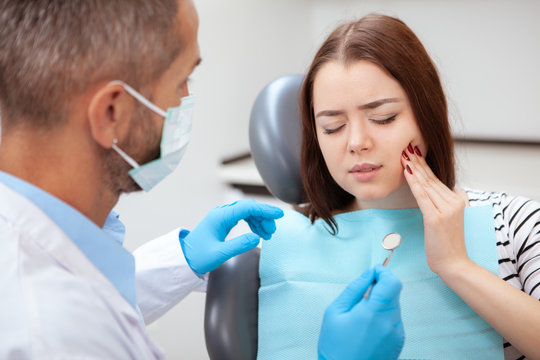Dental problems don’t always happen on schedule, and when they do, quick action can make all the difference. Emergency dentistry provides immediate care for issues such as severe tooth pain or broken teeth. Knowing how to respond in these situations can prevent complications and protect long-term oral health. Here’s more information about how to handle dental emergencies:
Common Types of Dental Emergencies
Several types of dental situations require immediate attention from an emergency dentistry specialist. Recognizing these conditions helps you determine when to seek urgent dental care. These include:
- Knocked-out tooth: This is a serious dental emergency. Immediate action within 30 minutes is key to maximizing the chances of successfully reimplanting the tooth.
- Broken or cracked teeth: Emergencies occur when the damage penetrates deeply into the tooth structure, potentially exposing the pulp or nerve.
- Severe tooth pain: This is often a sign of an underlying issue such as an infection, abscess, or nerve damage, requiring prompt treatment.
- Bleeding from the mouth: Persistent or heavy bleeding from the gums, tongue, or internal cheek is a concern that demands immediate attention.
- Swelling in the face, gums, or mouth: This may indicate a serious infection that, if untreated, could spread to other areas of the body.
Prompt identification and response to these conditions can help preserve oral health and prevent complications.
Steps You Can Take at Home
Taking appropriate first aid measures before seeking an emergency dentistry specialist can help preserve teeth and reduce complications. These steps provide temporary relief while you arrange professional dental care. For a knocked-out tooth, handle it carefully by the crown, not the root. Rinse the tooth gently with warm water to remove dirt or debris. Try to place the tooth back in its socket and bite down softly on gauze. If you cannot reinsert the tooth, store it in a glass of milk or hold it in your cheek next to the socket.
When dealing with a broken or chipped tooth, rinse your mouth with warm water to clean the area. Save any pieces of the broken tooth if possible. Apply a cold compress to the outside of your face to reduce swelling and control pain. For severe tooth pain, rinse your mouth with warm water and gently floss around the affected tooth to remove any trapped food particles. Take over-the-counter pain medication as directed, but avoid placing aspirin directly on the gums or tooth.
Preventing Future Dental Emergencies
Taking preventive measures significantly reduces your risk of experiencing dental emergencies. Regular dental care and protective habits help maintain oral health and prevent urgent situations. Wear a mouthguard during sports activities or other high-risk situations. Avoid chewing on hard objects, such as ice, popcorn kernels, or pen caps. Don’t use your teeth as tools to open packages or bottles.
Maintain good oral hygiene by brushing and flossing regularly. Schedule routine dental checkups and cleanings to catch problems early. Address dental issues promptly rather than waiting for them to worsen. Keep sugary and acidic foods to a minimum, as these can weaken teeth and increase the risk of decay. Stay hydrated and avoid habits like teeth grinding that can damage your teeth over time.
Get Emergency Dentistry Care Today
Dental emergencies require prompt action and professional care to achieve optimal outcomes. Remember to stay calm, take appropriate first aid measures, and seek immediate attention from an emergency dentistry specialist when facing urgent dental situations. For urgent dental emergencies, contact a dental practice near you to schedule a consultation with an emergency dentist right away.









